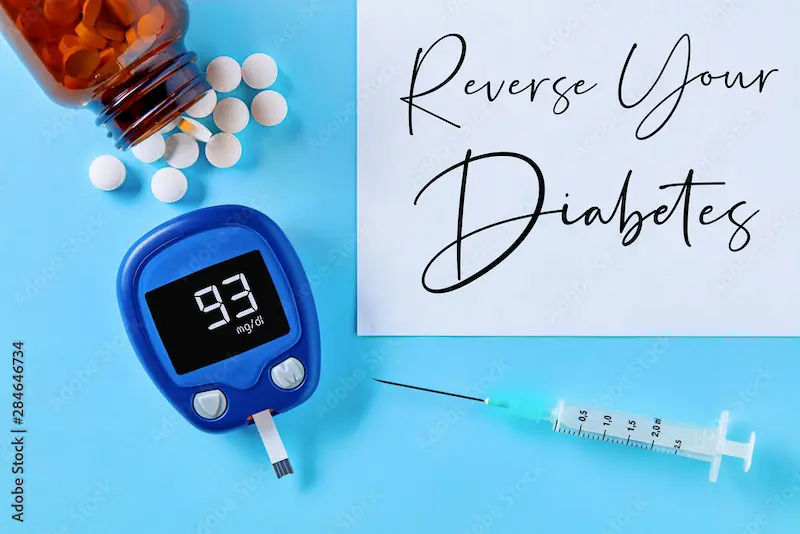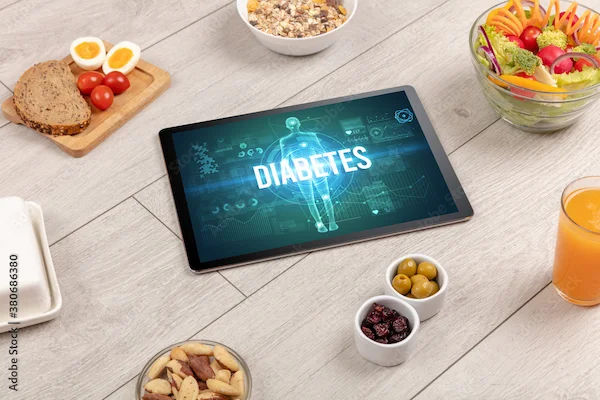Guide to Essential Foods Type 2 Diabetic
A comprehensive guide for Type 2 diabetics. Learn about the essential foods, meal planning tips, and healthy eating habits to effectively manage blood sugar and improve your overall wellbeing.


Introduction
Receiving a diagnosis of Type 2 diabetes can feel overwhelming, especially when it comes to rethinking your diet. You might be asking, "What can I actually eat?" The good news is that managing your blood sugar doesn't mean a life of deprivation. Instead, it’s about making smarter, more intentional essential food choices that nourish your body and keep your glucose levels stable. This guide is designed to demystify diabetic nutrition, moving beyond restrictive lists to empower you with knowledge and practical strategies. We’ll break down the core principles, explore the best foods to enjoy, and show you how to build a balanced, satisfying plate that supports your health journey. Think of this not as a diet, but as your new, sustainable way of eating for life.
The Core Principles of a Diabetic Diet
Managing Type 2 diabetes through diet is less about following a strict set of rules and more about understanding how different nutrients interact with your body. The goal is steady energy and stable blood glucose, avoiding the sharp spikes and crashes that can be detrimental to your health. By focusing on a few core principles, you can take control of your meals with confidence.
Understanding Carbohydrates: The Key to Blood Sugar Control
Carbohydrates have the most immediate impact on your blood sugar levels, as they are broken down into glucose. However, not all carbs are created equal. The key is to choose complex carbohydrates over simple ones. Complex carbs—found in whole grains, legumes, and vegetables—are digested slowly due to their fiber content, leading to a gradual rise in blood sugar. Simple carbs, like those in sugary drinks, white bread, and pastries, cause rapid spikes. Learning to identify and portion these smart carbohydrates is the most crucial skill in diabetic nutrition.
Consult Top Specialists
The Power of Fiber: Your Secret Weapon
Fiber, particularly soluble fiber, is a superstar for blood sugar control. It slows down the digestion and absorption of carbohydrates, preventing those unwanted spikes. It also helps you feel full longer, aiding in weight management—another critical factor for managing Type 2 diabetes. Excellent sources include oats, barley, legumes (beans and lentils), apples, citrus fruits, and carrots. Aim for at least 2530 grams of fiber per day to harness its full benefits.
Don't Fear Healthy Fats
For years, fat was wrongly demonized. We now know that healthy unsaturated fats are vital for heart health, reducing inflammation, and improving insulin resistance. Since people with diabetes are at a higher risk for heart disease, choosing the right fats is essential. Focus on incorporating sources like avocados, nuts (almonds, walnuts), seeds (chia, flax), and olive oil. These fats do not raise blood sugar levels and can help create a feeling of satiety.
The Role of Lean Protein
Protein is essential for building and repairing tissues and has a minimal direct effect on blood glucose. Including a source of lean protein in every meal can significantly slow the absorption of carbs, further smoothing out the blood sugar response. It also promotes fullness, which can help with weight management. Great choices include skinless poultry, fish (especially fatty fish like salmon rich in omega-3s), tofu, tempeh, legumes, and low fat Greek yogurt.
The Essential Food Groups: What to Fill Your Plate With
Now that we understand the why, let's explore the what. Building your diet around these foundational food groups will set you up for success.
Non Starchy Vegetables: The FreeFlowing Foundation
These are the foods you can enjoy in abundance! Nonstarchy vegetables are low in calories and carbohydrates but high in vitamins, minerals, and fiber. They should form the largest portion of your meals. Think leafy greens (spinach, kale), broccoli, cauliflower, bell peppers, zucchini, mushrooms, and asparagus. They add volume, nutrients, and crunch without significantly impacting your blood sugar control.
Lean Proteins: Building and Repairing
As discussed, protein is a key player. Prioritize:
- Poultry: Chicken and turkey breast (without skin).
- Fish: Salmon, mackerel, tuna, and sardines (at least twice a week).
- PlantBased: Tofu, tempeh, lentils, and chickpeas.
- Eggs and Dairy: Eggs, low fat Greek yogurt, and cottage cheese.
Healthy Fats: For Heart and Hormone Health
Incorporate these fats mindfully, as they are caloriedense:
- Avocado: A great source of fiber and healthy fat.
- Nuts and Seeds: A handful of almonds, walnuts, or pumpkin seeds makes a perfect snack.
- Oils: Use olive oil and avocado oil for cooking and dressings.
Smart Carbohydrates: Choosing the Right Ones
- These are your complex, high fiber carbs. Portion control is important here.
- Whole Grains: Quinoa, brown rice, oats, barley, and wholewheat bread/pasta.
- Legumes: Black beans, kidney beans, and lentils (which are also a great protein source!).
- Fruits: Berries, apples, pears, and citrus fruits are excellent best fruits for type 2 diabetes due to their lower glycemic impact and high fiber content. Enjoy them whole rather than juiced.
Foods to Limit or Avoid
While no food is completely off limits, some should be consumed rarely as they can severely disrupt blood sugar management:
- SugarSweetened Beverages: Sodas, sweet teas, and fruit punches.
- Refined Grains: White bread, white rice, and pastries.
- Highly Processed Snacks: Chips, crackers, and cookies.
- Fried Foods and Trans Fats: Found in margarine, shortening, and many packaged foods.
- Sugary Sweets: Candy, cake, and ice cream.
If your cravings for sweets persist despite dietary changes, it may be helpful to consult a doctor online with Apollo24|7 to rule out other underlying factors and create a personalized management plan.
Putting It All Together: The Plate Method
The American Diabetes Association promotes the "Plate Method" as a simple visual guide for diabetic meal planning without counting carbs. It’s effortless to follow:
1. Take a standard 9inch dinner plate.
2. Fill half your plate with nonstarchy vegetables.
3. Fill one quarter with lean protein.
4. Fill the remaining quarter with smart carbohydrates.
5. Add a serving of fruit or dairy on the side and a drink of water or unsweetened beverage.
Sample Meal Ideas for a Day
- Breakfast: Two scrambled eggs with spinach and mushrooms + a small side of berries.
- Lunch: A large salad (half the plate!) with grilled chicken breast, chickpeas, cucumbers, and tomatoes with an olive oil vinaigrette. A quarter of a wholewheat pita on the side.
- Snack: An apple with a tablespoon of almond butter.
- Dinner: Baked salmon (protein quarter), a large portion of roasted asparagus and broccoli (half plate), and a 1/2 cup of quinoa (carb quarter).
Beyond Food: Lifestyle Synergy
Nutrition is powerful, but it works best alongside other healthy habits. Regular physical activity helps your muscles use glucose more effectively. Prioritizing sleep and managing stress are also critical, as both can significantly influence insulin sensitivity and blood sugar levels. For a complete picture of your health, tracking key metrics is important. Apollo24|7 offers a convenient home collection for tests like HbA1c, which gives a three-month average of your blood sugar levels, providing invaluable feedback on how well your dietary and lifestyle changes are working.
Quick Takeaways: Your Diabetes Nutrition Cheat Sheet
- Master Carbs: Choose complex, highfiber carbs over simple, refined ones.
- Load Up on Veggies: Make nonstarchy vegetables the star of your plate.
- Include Protein: Add a lean protein source to every meal to stabilize blood sugar.
- Choose Fats Wisely: Prioritize unsaturated fats from nuts, seeds, and avocados.
- Hydrate Smartly: Drink primarily water or other unsweetened beverages.
- Use the Plate Method: Let this simple visual guide your portion control.
- Plan Ahead: Diabetic meal planning is key to avoiding unhealthy choices when you're hungry.
Conclusion: Empowerment Through Food Choices
Managing Type 2 diabetes is a journey, and your diet is one of the most powerful tools you have. This guide to essential foods diabetic strategies isn't about restriction; it's about liberation. By understanding the role of different nutrients and learning to build a balanced plate, you empower yourself to make choices that support stable energy, overall health, and wellbeing. Start by implementing one or two changes, like adding more vegetables to your lunch or swapping a sugary snack for a handful of nuts. Remember, consistency over perfection is the goal. You have the ability to positively influence your health with every meal you eat.
Consult Top Specialists
Consult Top Specialists

Dr. Rajib Ghose
General Physician/ Internal Medicine Specialist
25 Years • MBBS
East Midnapore
VIVEKANANDA SEBA SADAN, East Midnapore

Dr. Utsa Basu
Diabetologist
14 Years • MBBS , MD
Barasat
Diab-Eat-Ease, Barasat
(75+ Patients)

Dr Tushar Karmakar
General Physician/ Internal Medicine Specialist
7 Years • MBBS, MD General Medicine
Kolkata
Kare pharmacy, Kolkata

Dr Sahana Gangatkar
General Physician/ Internal Medicine Specialist
8 Years • MBBS, MD
Bengaluru
Apollo Clinic, JP nagar, Bengaluru
(25+ Patients)

Dr Bhargav Vuppumalla
General Physician/ Internal Medicine Specialist
5 Years • MBBS MD GENERAL MEDICINE
Bengaluru
Apollo Medical Center, Marathahalli, Bengaluru
Consult Top Specialists

Dr. Rajib Ghose
General Physician/ Internal Medicine Specialist
25 Years • MBBS
East Midnapore
VIVEKANANDA SEBA SADAN, East Midnapore

Dr. Utsa Basu
Diabetologist
14 Years • MBBS , MD
Barasat
Diab-Eat-Ease, Barasat
(75+ Patients)

Dr Tushar Karmakar
General Physician/ Internal Medicine Specialist
7 Years • MBBS, MD General Medicine
Kolkata
Kare pharmacy, Kolkata

Dr Sahana Gangatkar
General Physician/ Internal Medicine Specialist
8 Years • MBBS, MD
Bengaluru
Apollo Clinic, JP nagar, Bengaluru
(25+ Patients)

Dr Bhargav Vuppumalla
General Physician/ Internal Medicine Specialist
5 Years • MBBS MD GENERAL MEDICINE
Bengaluru
Apollo Medical Center, Marathahalli, Bengaluru
More articles from Diabetes
Frequently Asked Questions
What are the best fruits for type 2 diabetes?
Berries (strawberries, blueberries, raspberries), apples, pears, and citrus fruits are excellent choices because they are high in fiber and have a lower glycemic index. The key is to eat them whole and in moderation, typically one small serving per meal.
Can I ever eat sugar again?
An occasional small treat can be part of a healthy diet if it's planned for and balanced with other foods and exercise. The problem is consistent, large consumption. Focus on creating a overall pattern of healthy eating where sweets are the rare exception, not the rule.
What are some healthy snacks for diabetics?
Great options include a small apple with peanut butter, a handful of almonds, carrot sticks with hummus, a hardboiled egg, or a cup of plain Greek yogurt with a few berries.
Is a keto diet good for type 2 diabetes?
While a very low carb keto diet can lead to rapid weight loss and blood sugar improvement, it is extremely restrictive and can be difficult to maintain longterm. It may also pose risks for some individuals. It's crucial to speak with a doctor or dietitian before starting any extreme diet.
How often should I check my blood sugar?
The frequency of monitoring is highly individual and should be determined by your doctor based on your type of medication, how well your blood sugar is controlled, and your overall treatment plan. If your condition does not improve after trying these methods, book a physical visit to a doctor with Apollo24|7 to establish a personalized monitoring and management plan.


